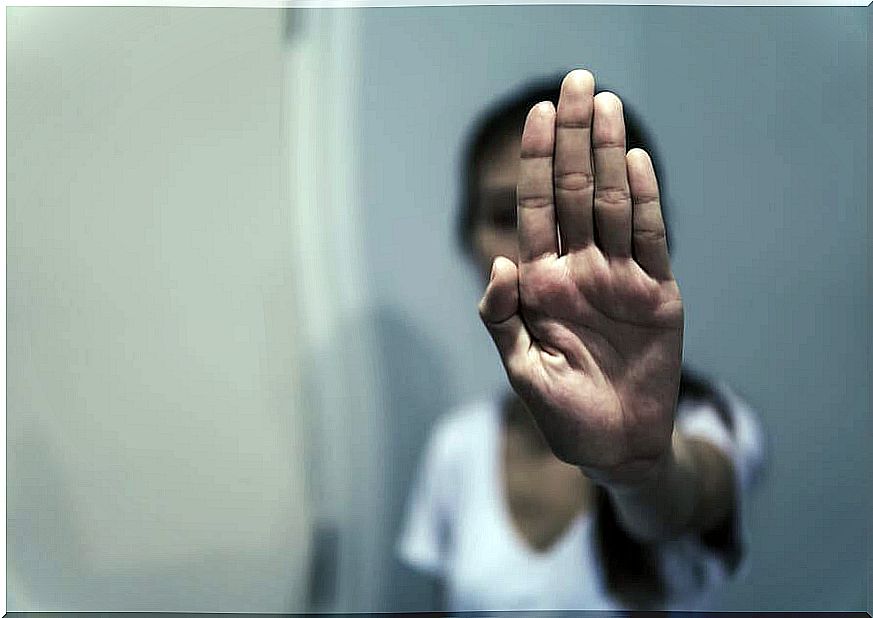Verbal Abuse: Examples And Recommendations
Nobody has the right to insult, disparage or disparage others. Relationships with other people must always be based on mutual respect. If verbal abuse does occur anyway, you need to set boundaries or report the situation.

Verbal abuse is a type of violence that should not occur. If you experience this situation, you need to take action and file a complaint. This emotional injury attacks the dignity of the victim and must be prevented in any case.
Today we invite you to reflect on this topic with us.
What is verbal abuse?
Verbal abuse can be defined as: “The excessive use of language to undermine the dignity and safety of a person through insults or humiliations, either spontaneously or repetitively.”
This definition makes it clear that there are different types of verbal abuse. For example, it can be an abuse, a bad comment, etc. The perpetrator who has the “authority” or the “privilege” to humiliate the other person attacks the victim’s self-esteem.
Verbal abuse, like any type of emotional abuse, can occur anywhere, anytime, and we can all be affected. Children, adolescents, adults or the elderly can suffer from it. This type of abuse can occur in relationships, between friends, at work, at school, etc.
Verbal abuse and its consequences

Verbal abuse does not leave bruises or visible wounds, but it is nonetheless a form of violence and abuse. However, these situations are more difficult to spot.
Among other things, the following behaviors can occur:
- Aggressive verbal battles (insults, humiliations, humiliations)
- Charges and allegations
- Condemnation and degrading or offensive criticism
- Contempt and degradation of the victim
- contempt
- Orders and yelling to force things
- Threats
- Humiliating, shameful nicknames
We can all lose our nerve at some point and respond irritably. But in this case we need to think about it, repent and ask for forgiveness after realizing the harm caused. But verbal abuse is a repetitive practice in which the victim is repeatedly disparaged because the perpetrator sees them as inferior.
Examples of verbal abuse
The following examples clearly show verbal abuse:
- In a relationship: the partner commands what to do instead of asking for it. In addition, she or he acts prepotent, hurtful and yells at the other. The abusing person believes that the partner is at their service and has no value themselves. She also assumes that the victim has an obligation to serve her.
- Among friends: The perpetrator uses degrading and hurtful nicknames. He can also threaten or disparage the victim in front of others.
- At work: The boss orders an employee to do certain things with unsightly comments, some of which he expresses in front of other work colleagues. The abuse can be public or private. The constant by no means constructive criticism and humiliation are a clear sign.
- Between parents and children: Verbal abuse occurs again and again within the family. The child is disparaged by unsightly nicknames, offended, or their efforts are not recognized. It keeps hearing that it cannot do anything and is incapable of doing anything. Verbal abuse leaves a particularly deep mark on children, the effects of which are still evident in adulthood.
What to do?

The first step is to recognize the verbal abuse. Only when you identify the problem can you do something about it and avoid further suffering.
After that, you absolutely have to set limits. These boundaries should exist before a relationship becomes serious. Because this is how the perpetrator understands that he has no privilege and no right to humiliate you.
On the other hand, it is quite possible that the abuse will not stop despite these limits. In this case, it is imperative that you seek professional help. It depends on how and in what context the abuse takes place. When it comes to a problem in a relationship, it is extremely important to seek advice from a therapist or someone you trust. Any abuse must be reported.
However, if the abuse occurs among children in school, the school management and the parents of the perpetrator must be notified. Every school has a corresponding protocol that is used for this.
Asking for help or reporting the situation are the most important steps. Of course, this is not easy and since many victims have very low self-esteem, it is particularly difficult for them. The perpetrator made them depend on him, which makes the relationship very complicated.
In other cases , fear of the consequences holds victims back from filing a complaint or seeking help. The perpetrator can threaten and warn the person concerned (for example, the boss can threaten to give notice).
So the most important step is to put aside the fear and report the perpetrator. This is the only way to prevent further suffering. The victim can then gradually rebuild his or her dignity and self-esteem.









